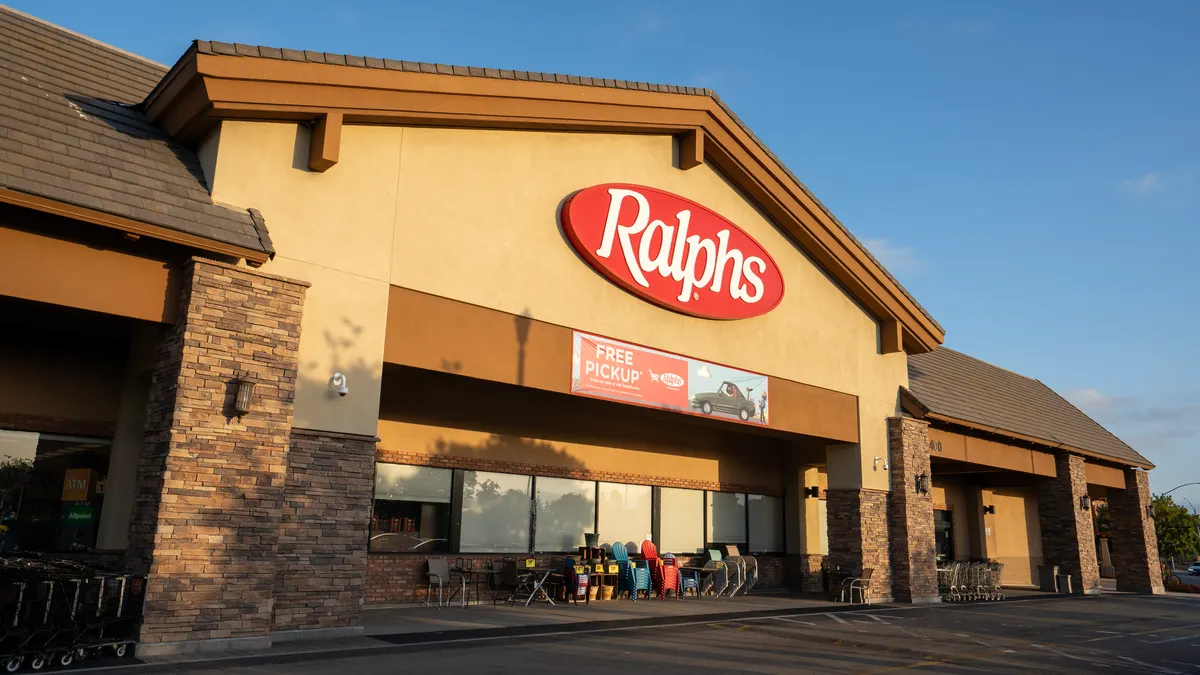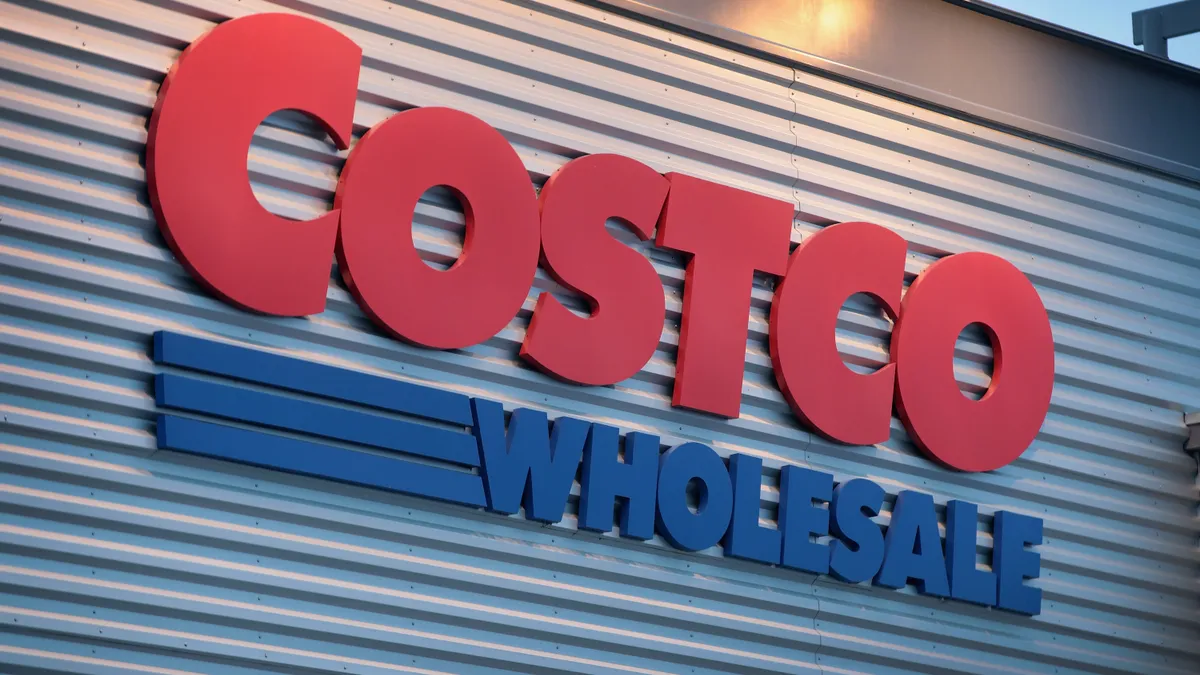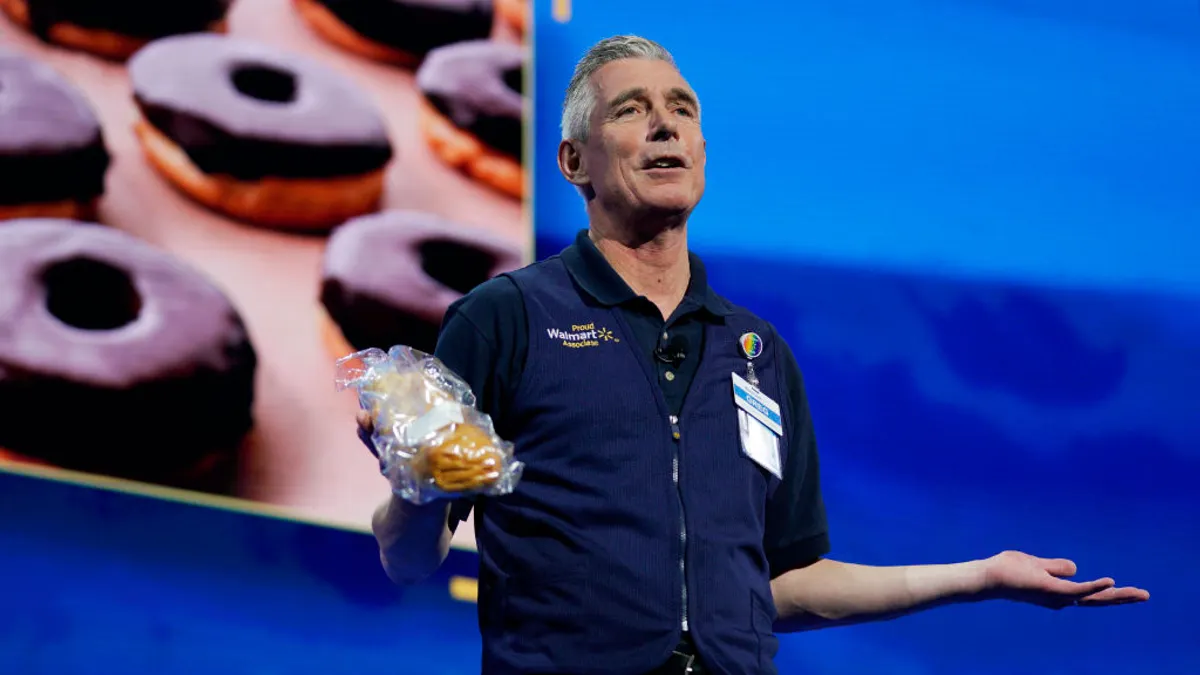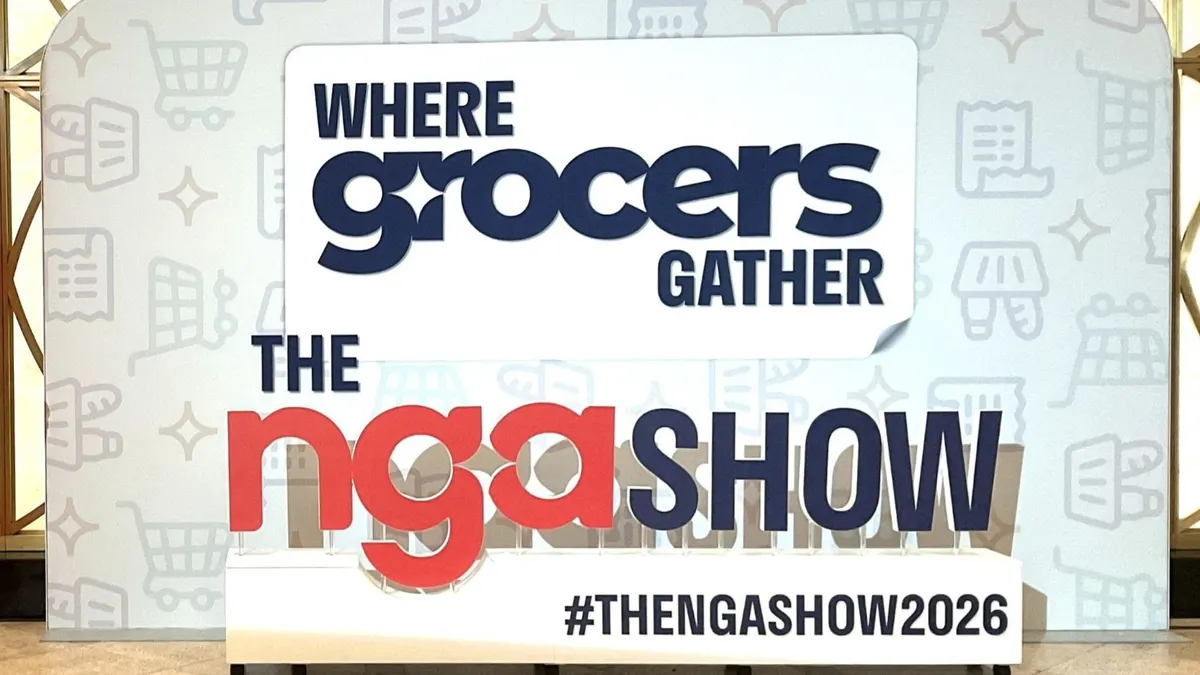Number Sense is a regular column that uses data to help understand the grocery landscape.
When Sprouts Farmers Market awarded its CEO, Jack Sinclair, about 8,000 of the specialty grocery company’s shares on March 9, 2020, the securities were worth about $133,000. For most of the chain’s employees, receiving such a chunk of money could have been life-changing — but for Sinclair, the sum was just a sliver of his overall pay package that year, which came to nearly $8.5 million.
That’s only part of the story, however. The value of Sprouts’ shares has soared more than sevenfold during the past five-and-a-half years as investors have cheered the chain’s strong financial performance, an ascent that netted Sinclair more than $1.1 million earlier this month, when he sold the stock he got in 2020. And even that windfall is still relatively paltry compared with the $12.2 million in compensation Sinclair pocketed in fiscal 2024, the most recent year for which figures about his compensation are available.
These stunning numbers stand out when viewed through the lens of Sprouts’ almost 35,000 other employees, whose median pay last year was a little under $32,000. Imagine, it would take a typical Sprouts worker 385 years to earn what the CEO took home in just 12 months.
Sinclair is hardly alone in hitting it big financially as a corporate leader in the grocery industry, of course. A review I recently performed of top-level executive pay at a cross-section of the nation’s grocery retailers showed that chief executives in the sector routinely collect multimillion-dollar pay packages — even when their companies have tough years.
Grocers also pay their CEOs handsomely despite the fact that they operate in an industry known for its razor-thin profit margins.
Target Chair and CEO Brian Cornell, who took in $20.4 million in fiscal 2024, is another example of how well top executives in the industry are paid. Cornell earned as much last year as 753 median Target associates, who the retailer paid about $27,000 in 2024. But unlike Sprouts, Target rewarded Cornell with a lavish amount last year even as it saw sales decline and its stock price stagnate.
Target’s shares are down by a third so far in 2025, ahead of Cornell’s scheduled departure from his post as chief executive in 2026. Target’s shareholders voted overwhelmingly to approve the retailer’s executive compensation plan during the company’s annual meeting in June, despite the weakness in its stock price.
Other grocery retailers also provide their CEOs with compensation packages that are worth hundreds of times what they pay their median workers. For instance, in fiscal 2024 the ratio between what former Kroger Chairman and CEO Rodney McMullen and the grocer’s median associate earned was 457:1, while former Albertsons CEO Vivek Sankaran earned 475 times as much as that company’s median employee.
Poring over these figures got me thinking more deeply about what seems to be an accepted, if uncomfortable, truth about the food retailing industry, and across the retail space in general: That grocers cannot function without armies of low-paid frontline workers, but also have no choice but to reward their CEOs with sky-high compensation.
Retailers work hard to keep the focus off this disparity, of course, and take pains to describe the positions they offer as career opportunities with attractive wages. Target touted its starting wage range of $15 to $24 per hour in a press release about the seven new stores it plans to debut this fall, noting that it has “long invested in our teams.” But to find out what Cornell earns, you have to burrow deep into its proxy statement, a complex document required by regulators that the company does not go out of its way to promote.
It’s hard not to wonder if the eye-popping differences between what grocers pay their CEOs and the wages they pay the legions of people who run their stores, distribution centers and other operations are unavoidable. Put another way, could retailers attract the skills they need at the top of their corporate ladders even if they paid less?
To help put all of this into context, I consulted a pair of executive compensation experts with experience helping retailers determine what to pay their leaders. They both pointed out that grocery chains are highly complex organizations that have to compete with other companies for the management talent they need while also facing constraints on how much they can pay rank-and-file employees.
Marc Roloson, a senior director for corporate advisory firm WTW, noted that companies determine how to compensate people based on what other companies in their industry pay. In fact, while grocery company CEOs earn pay packages that trounce what most others in the workforce receive, they’re hardly up there with the nation’s best-paid corporate leaders, some of whom have nine-figure compensation arrangements.
Roloson emphasized that a big chunk of the typical CEO’s compensation stems from bonuses linked to how well the company they run meets performance benchmarks, not its share price. For example, if a company achieves a target related to its annual operating income, its CEO could still pocket a bonus tied to that metric even if its stock price drops.
“The conundrum that we face in the exec comp world is how do you balance the mix between paying for performance but also retaining the talent that’s needed to run the business and making sure that the design of the incentive programs truly penalize underperformance for things that are in management’s control while also not overly penalizing the things that are not in their control,” Roloson told me.
Roloson also said it can be more meaningful to gauge how well a company treats its ordinary workers by looking at metrics like median pay over time than to look at pay ratios. Retention rates and even people’s opinions on job-search sites like Glassdoor can also provide a window into where employees stand, he suggested.
Jose Tamez, managing general partner of Austin-Michael, an executive search firm that helps grocers recruit senior-level executives, made the point that what can be a lot of money when viewed through the lens of an individual’s compensation can actually be a very good investment in terms of the overall value a CEO brings to the company. So if a CEO is able to, say, reduce shrink by millions of dollars, then paying them a few hundred thousand dollars as a bonus could be seen as a bargain, he explained.
These things all make perfect sense when you look at a grocery company purely as a business. But when you reflect on the fact that companies are simply groups of people, the fact that a corporate leader can pocket more money in one year than a regular worker could take home in five lifetimes seems fundamentally out of balance.





















